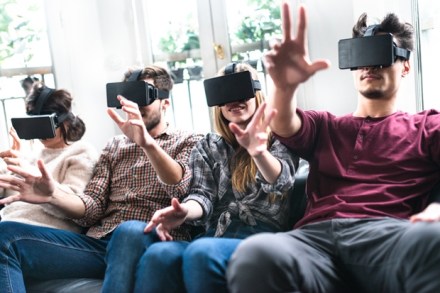A fitbit for your finances and a way to improve your mental health
Tools to help with ‘personal improvement’ were the big consumer trend of 2016. Whether it was healthy recipe boxes to overhaul your diet, a Fitbit to force you to exercise or apps to teach you another language on your commute, they were hard to avoid. Industries of all kinds predicted a future where goods and services are not only designed to fit our unique desires, but to help us shape them. In 2017 it looks like that trend is coming to banking, and it’s potentially great news for our mental health as well as our wallets. Financial technology is beginning to disrupt retail banking. Challenger banks based around an app –



















